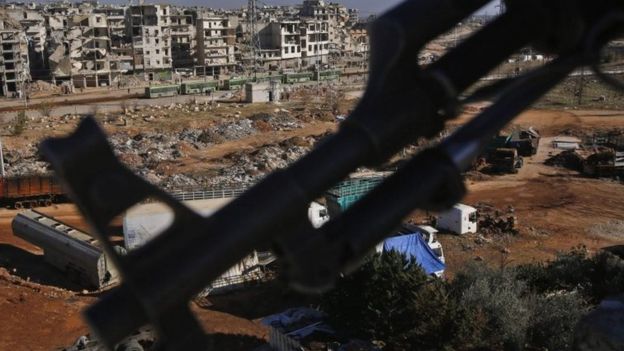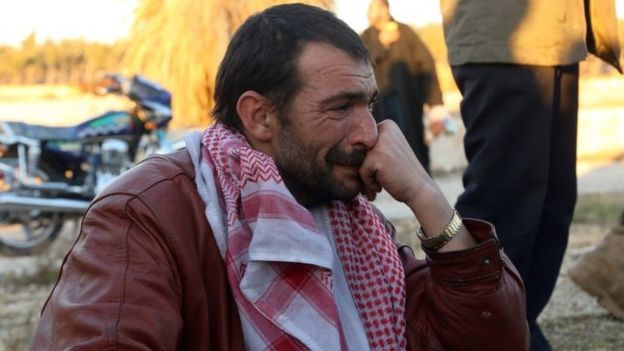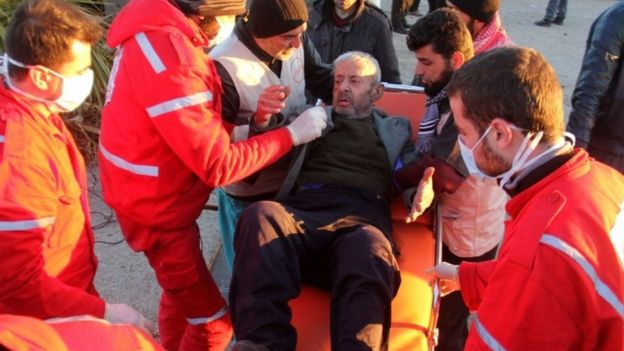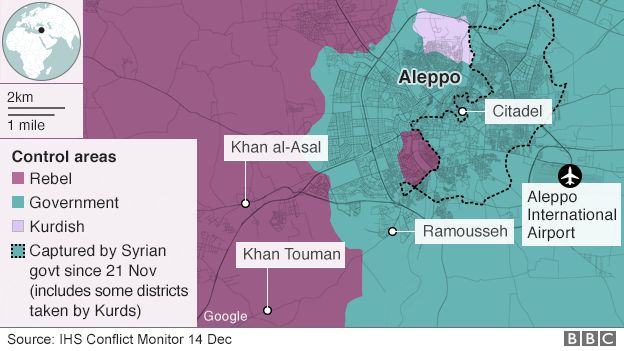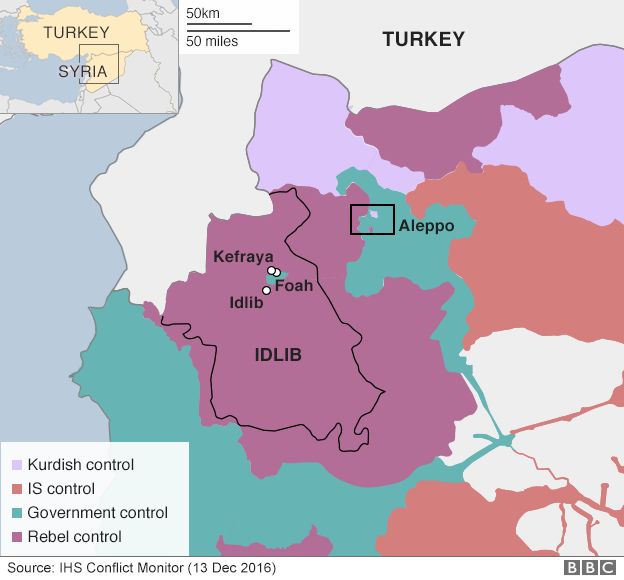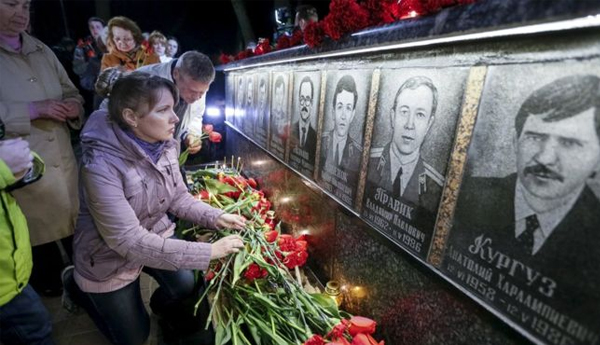The evacuation of Syrian civilians and rebels from eastern Aleppo is continuing round the clock, as a truce was reported to be holding overnight.
The International Committee of the Red Cross (ICRC) told the BBC aid workers wanted to keep the momentum going.
More than 3,000 people were bussed out on the first day of the evacuation on Thursday, but the UN says as many as 50,000 are still trapped.
Syria’s army, backed by Russia, has taken nearly all rebel-held districts.
Global solidarity over Aleppo
Russia hails Aleppo recapture as a victory over terrorism
How Srebrenica’s survivors view Aleppo
What’s happening in Aleppo?
What happens next?
The US accused the Syrian government of carrying out “nothing short of a massacre” in the city.
“The only remaining question is whether the Syrian regime, with Russia’s support, is willing to go to Geneva prepared to negotiate constructively, and whether or not they’re willing to stop this slaughter of their own people,” US Secretary of State John Kerry said.
Syria and Russia have repeatedly denied targeting civilians.
Syrian President Bashar al-Assad on Thursday hailed the “liberation” of Aleppo after more than four years of fighting, saying that history was being made.
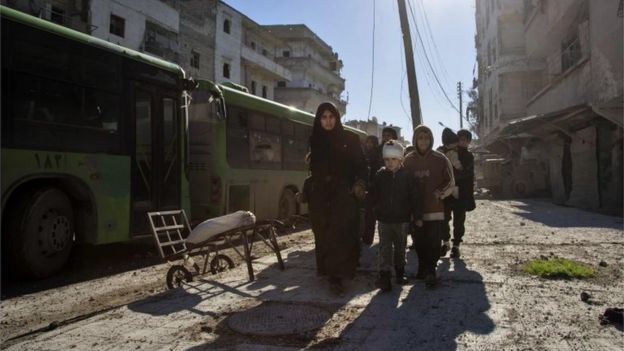 Image captionMany of those evacuated are being taken to Idlib province
Image captionMany of those evacuated are being taken to Idlib province
Many thousands of people, including a large number of civilians, have been killed during the fierce fighting.
Russian President Vladimir Putin said Russia and Turkey were trying to broker a new round of peace talks in Astana, Kazakhstan. These would be in addition to the UN-run efforts in Geneva.
Mr Putin said Russia and Turkey were trying to negotiate a “complete ceasefire across all of Syria”.
Keep momentum
On Friday, ICRC spokesman Pawel Krzysiek told the BBC that “the evacuation is ongoing right now”.
“That means we’re expected to work around the clock – Syrian Red Crescent volunteers, the ICRC staff. We definitely want to keep this momentum going as the situation of the people is truly desperate there,” he added.
The ICRC said earlier that some 3,000 civilians and more than 40 wounded, including children, were evacuated in two convoys on Thursday.
The UN envoy to Syria, Staffan de Mistura, later gave an estimate of the numbers still trapped in eastern Aleppo.
“There are 50,000 people, including 40,000 civilians, unfortunate enough to live in that part of the city.”
In other developments on Thursday:
-
US President-elect Donald Trump reiterated he would establish safe zones in Syria, which would be partly financed by the Gulf states
-
At an EU summit, German Chancellor Angela Merkel described the situation in Aleppo as “heart-breaking” and regretted European diplomacy had failed
-
EU Council President Donald Tusk demanded the immediate opening of humanitarian corridors to allow aid into Aleppo
-
Britain said it would provide a further £20m ($25m) in aid, including clean water and food, to millions of Syrians
